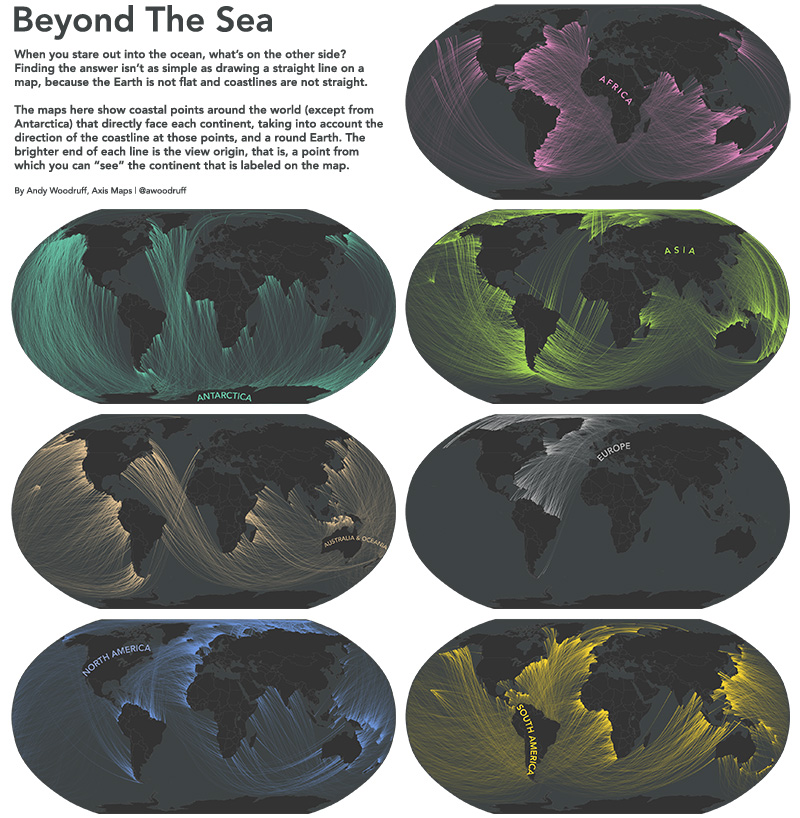Whenever we sit on the coast staring at the wide sea where do you think you are looking at?
This question might sound silly and you may imagine the map to pick up your next closest continent. But it is not true because not only is your beach almost definitely not directly opposite to whichever coastline you thought it was looking over, your assumptions are probably also way, way off.
Let’s open our eyes wide open by these incredible maps created by cartographer Andy Woodruff that can show us where we are looking at.
For example, if you’re living on the east coast of the US, you’re more likely to be looking out over South America or Africa than Europe – despite how it looks on a regular map.
When you are watching from vancouver islands probably gazing at Antarctica. When you are sitting on the beaches of St Anthony in Newfoundland, Canada you look at Australia and not Greenland or Iceland. And can you imagine from Sydney we look across the west coast of the US.
Thanks to , Woodruff’s ‘Beyond the Sea’ collection of maps. These maps have been created to help show us the truth by using coloured lines to connect what’s directly across from a coastline – the brighter spots show the origin of the viewer and the lighter points they’re connected to represent their view. The results are astonishing.
The point across the sea following the curve of the earth can even lead us to the next shore that can be half a world away.
The way each coastline in the world is facing has to be assessed using Natural Earth data. Here the straight line directly across from one specific coastline must follow the lines of latitude. These “Beyond the sea” maps are certainly a lot more accurate than our imagination.

Source: Andy Woodruff
























since one resides on a sphere – if one draws a “line of sight” – it would a tangent to the earth’s surface – – effectively ensuring that we are always looking towards another galaxy – and not towards another continent.